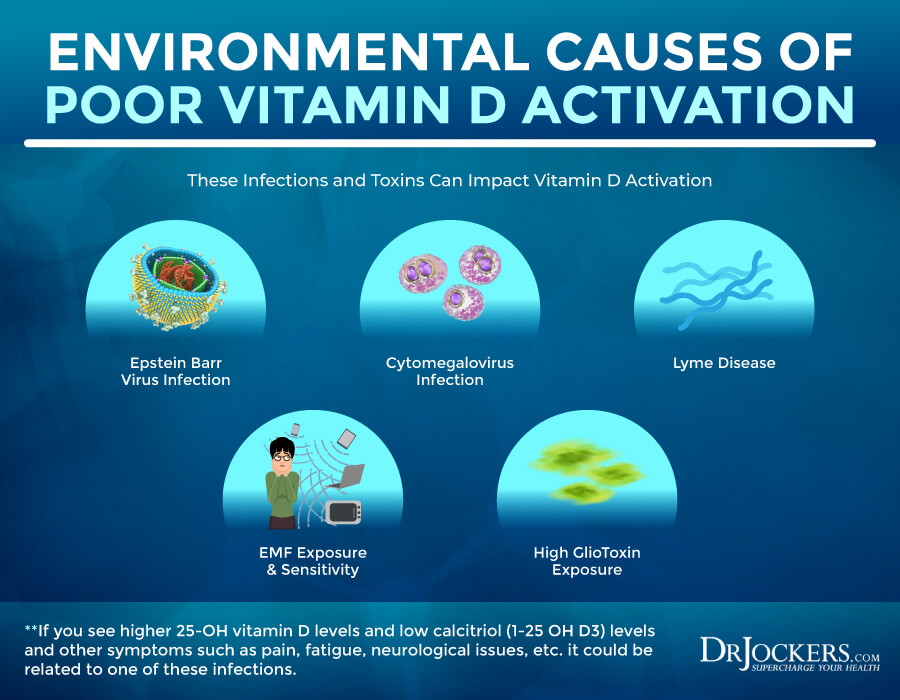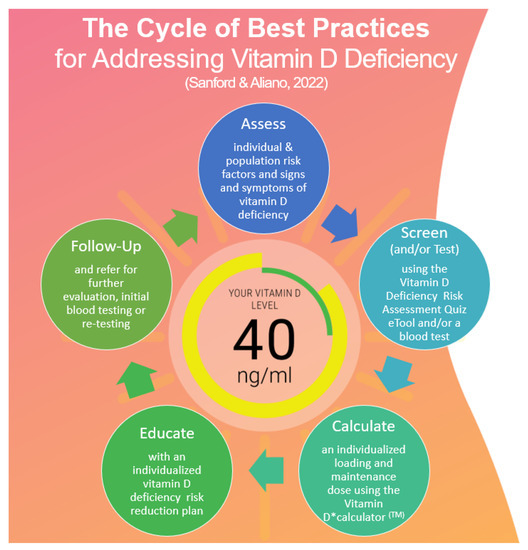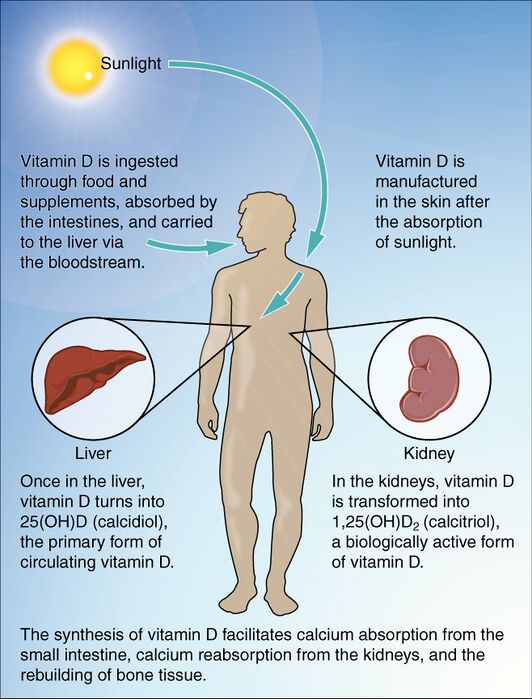Uncover the surprising link between Vitamin D and autoimmunity in this must-read blog post for anyone seeking optimal health.
Table of Contents
- Introduction to Vitamin D and Autoimmunity
- Understanding How Vitamin D Works
- Vitamin D Deficiency: A Sneaky Problem
- Vitamin D’s Role in Preventing Autoimmunity
- Linking Vitamin D and Specific Autoimmune Diseases
- How Do You Get Enough Vitamin D?
- How Doctors Measure and Manage Vitamin D Levels
- When Too Much of a Good Thing Is Bad: Vitamin D Overload
- Myths vs. Facts: Vitamin D and Autoimmunity
- Conclusion: Embracing the Sunshine Vitamin for Immune Health
- FAQs
Introduction to Vitamin D and Autoimmunity
In this section, we will explore the importance of vitamin D in relation to the immune system and autoimmunity. Understanding how vitamin D affects our bodies, particularly in the context of autoimmune diseases, is essential for maintaining good health.
What is Vitamin D?
Vitamin D is a vital nutrient that plays many roles in our bodies. It helps us absorb calcium for strong bones and muscles, supports our immune system to fight off infections, and even contributes to keeping us happy by regulating mood.
What Does ‘Autoimmunity’ Mean?
Autoimmunity is when our immune system, which is meant to protect us from harmful invaders like bacteria and viruses, mistakenly attacks our own healthy cells and tissues. This can lead to various autoimmune diseases where the body’s defense system turns against itself.
Understanding How Vitamin D Works
Vitamin D is like a superhero for our bodies. It helps our bones grow strong and healthy, making sure we can run, jump, and play without any problems. Not just that, this amazing vitamin also works to keep our muscles in top shape, helping us move around easily. And here’s the cool part – vitamin D even plays a role in making sure we feel happy and cheerful!
Vitamin D: A Friend to our Immune Cells
Our bodies have an awesome defense system called the immune system. It’s like having an army inside us that fights off germs and keeps us healthy. Vitamin D acts like a best friend to our immune cells, helping them work better and smarter. When we have enough vitamin D, our immune system stays strong and can protect us from getting sick.
Vitamin D Deficiency: A Sneaky Problem
Have you ever heard of vitamin D deficiency? It’s like a ninja that sneaks up on your body without you even realizing it. Let’s uncover what happens when your body doesn’t have enough of this important vitamin. But first, let’s understand what vitamin D is and why it’s so crucial.

Image courtesy of drjockers.com via Google Images
Signs You Might Be Running Low on Vitamin D
When your body lacks vitamin D, it can show some sneaky signs that you might not notice right away. Feeling tired all the time, getting sick often, or having aches and pains in your bones and muscles could be indicators that your body needs more vitamin D. If you find yourself feeling down in the dumps or noticing that your wounds take longer to heal, it may also be a sign that you’re running low on this essential vitamin.
Who’s Missing Out on Vitamin D?
Some people are more likely to have vitamin D deficiency than others. If you live in a place where there isn’t much sunlight, if you spend a lot of time indoors, or if you have darker skin, you might be at a higher risk of not getting enough vitamin D. Also, if you don’t eat foods rich in vitamin D or if your body has trouble absorbing it, you could be missing out on this vital nutrient.
It’s essential to keep an eye out for these signs and understand who is more prone to vitamin D deficiency so that you can make sure your body gets all the vitamin D it needs to stay healthy and strong. But don’t worry, there are ways to boost your vitamin D levels and keep that sneaky deficiency at bay!
Vitamin D’s Role in Preventing Autoimmunity
In our body’s battle to stay healthy, vitamin D plays a crucial role in preventing autoimmune diseases. So, what exactly does this mighty vitamin do to keep our immune system in check? Let’s dive in and explore the superhero powers of vitamin D in the realm of autoimmunity.
A Shield Against Mistakes in the Immune System
Picture this: our immune system is like an elite army defending our body against invaders. But sometimes, this army can get confused and mistake our own cells for enemies, leading to autoimmune diseases like Graves disease, rheumatoid arthritis, type 1 diabetes, multiple sclerosis, and lupus. Vitamin D swoops in like a shield, guiding our immune cells to recognize friend from foe. By ensuring adequate levels of vitamin D, we can help prevent these friendly-fire attacks on our own tissues.
Keeping the Peace with Vitamin D
Think of vitamin D as a peacekeeper in our immune system. It has the incredible ability to balance the various components of our immune response, ensuring that inflammation – a key player in autoimmune diseases – doesn’t spiral out of control. By maintaining a harmony within our immune system, vitamin D minimizes the chances of autoimmune disorders gaining the upper hand.
Linking Vitamin D and Specific Autoimmune Diseases
When it comes to autoimmune diseases like Graves’ disease, rheumatoid arthritis, type 1 diabetes, multiple sclerosis, and lupus, researchers have been uncovering intriguing connections to vitamin D. Let’s delve into how this essential vitamin may play a role in these conditions.

Image courtesy of drjockers.com via Google Images
When the Body Attacks the Thyroid: Graves’ Disease
Graves’ disease is a condition where the immune system mistakenly targets the thyroid gland, leading to issues like hyperthyroidism. Some studies suggest that maintaining adequate levels of vitamin D may help manage inflammation in the thyroid and potentially ease symptoms associated with this disease.
Joints Under Attack: Rheumatoid Arthritis
Rheumatoid arthritis is an autoimmune disorder characterized by inflammation in the joints. While more research is needed, some evidence indicates that sufficient levels of vitamin D could have a protective effect against the development or progression of rheumatoid arthritis.
Protecting the Body’s Sugar Factory: Type 1 Diabetes
Type 1 diabetes occurs when the immune system destroys insulin-producing cells in the pancreas. Studies have suggested that vitamin D might play a role in modulating the immune response and reducing the risk of developing type 1 diabetes, especially in children.
Defending the Nerves: Multiple Sclerosis
Multiple sclerosis is a condition where the immune system attacks the protective covering of nerve fibers. Research has shown that vitamin D may have a protective effect on nerve cells and potentially help slow the progression of multiple sclerosis. Ensuring adequate vitamin D levels could be beneficial for individuals living with this condition.
Lupus: When the Immune System Goes Haywire
Lupus is a complex autoimmune disease that can affect various parts of the body. While the exact role of vitamin D in lupus is still being studied, some research suggests that vitamin D may help regulate the immune response and reduce inflammation associated with this condition. Maintaining optimal vitamin D levels could potentially be beneficial for individuals with lupus.
How Do You Get Enough Vitamin D?
One of the coolest things about getting enough vitamin D is that you can actually make some of it just by being outside in the sun! When sunlight touches our skin, our bodies start to create this special vitamin that helps us stay healthy. So, next time you’re playing outside, remember that the sun is not just shining down on you but also helping you make vitamin D.
| Reason | Information |
|---|---|
| Vitamin D Deficiency | Low vitamin D levels have been linked to increased risk of developing autoimmune diseases. |
| Regulation of the Immune System | Vitamin D plays a crucial role in regulating the immune system and preventing it from becoming overactive. |
| Inflammation | Vitamin D helps reduce inflammation, which is a common factor in many autoimmune diseases. |
| Immune Response | Adequate levels of vitamin D are important for a balanced immune response and to prevent the immune system from attacking healthy tissues. |
Vitamin D-Rich Foods
If you’re not a fan of spending time under the sun, don’t worry! There are also tasty foods that can give you your daily dose of vitamin D. Some of these foods include fatty fish like salmon and mackerel, egg yolks, and fortified milk or orange juice. So, if you’re looking to boost your vitamin D levels, these delicious options can do the trick!
Vitamin D Supplements: Do You Need Them?
Sometimes, especially during darker and cloudier days, getting enough sun exposure or eating vitamin D-rich foods might not be enough. In those cases, doctors might recommend taking vitamin D supplements. These are like little helpers in the form of pills that make sure your body is getting all the vitamin D it needs to keep you strong and healthy. So, if your doctor suggests it, taking these supplements could be a good idea.
How Doctors Measure and Manage Vitamin D Levels
Ensuring that you have enough vitamin D is crucial for your overall health, especially when it comes to preventing autoimmune diseases like Graves’ disease, rheumatoid arthritis, type 1 diabetes, multiple sclerosis, and lupus. But how do doctors know if you have sufficient vitamin D levels? Let’s take a closer look at how they measure and manage vitamin D levels.

Image courtesy of www.mdpi.com via Google Images
Taking a Peek Inside: Vitamin D Blood Tests
One of the primary ways doctors determine your vitamin D status is through a simple blood test. This test measures the level of vitamin D in your blood, specifically looking at a form called 25-hydroxyvitamin D. The results help doctors understand whether you have enough vitamin D in your body or if you might be deficient.
From Low to Glow: Fixing Vitamin D Deficiency
If the blood test reveals that you have low vitamin D levels, your doctor may recommend various ways to help you get back on track. One common approach is to increase your intake of vitamin D through diet and supplements. Your doctor might suggest specific foods rich in vitamin D or prescribe vitamin D supplements to boost your levels. Additionally, spending more time in the sun can also help increase vitamin D production in your body.
When Too Much of a Good Thing Is Bad: Vitamin D Overload
While vitamin D is crucial for your health, getting too much of it can lead to various issues. Some signs that you may have an excess of vitamin D in your body include:
- Feeling nauseous or vomiting
- Having a poor appetite or losing weight unintentionally
- Feeling weak and fatigued
- Experiencing constipation
- Developing kidney stones
Staying Balanced: The Right Amount of Vitamin D
It’s vital to maintain proper vitamin D levels to reap all its benefits without overdoing it. Here are some tips to ensure you’re getting the right amount:
- Consult with your healthcare provider to determine the appropriate vitamin D intake for your age and health status.
- Get your vitamin D levels checked regularly to monitor if you are deficient or exceeding the recommended amount.
- Practice safe sun exposure by spending limited time in the sun without sunscreen to allow your body to produce vitamin D naturally.
- Incorporate vitamin D-rich foods into your diet, such as fatty fish, fortified dairy products, and egg yolks.
- If needed, consider taking vitamin D supplements under the guidance of a healthcare professional to meet your daily requirements.
Myths vs. Facts: Vitamin D and Autoimmunity
There is a myth that simply stepping out into the sun can provide you with all the vitamin D your body needs. While sunlight is a natural source of vitamin D, factors like skin color, sunscreen use, and geographical location can affect how much vitamin D your skin can produce. It’s important to balance sun exposure with other sources of vitamin D like food or supplements.

Image courtesy of www.physio-pedia.com via Google Images
Another common misconception is that vitamin D alone can cure autoimmune diseases. While sufficient levels of vitamin D are crucial for a healthy immune system, it is not a cure for autoimmune conditions. Vitamin D plays a role in helping to regulate the immune response, but it is just one piece of the puzzle in managing autoimmune diseases.
The Surprising Truths of Vitamin D and Immune Health
On the bright side, the truth is that vitamin D does indeed have a significant impact on our immune health. It helps to modulate the immune response, which can be beneficial in reducing inflammation and preventing immune cells from mistakenly attacking our own tissues.
Research suggests that maintaining adequate levels of vitamin D may help reduce the risk of developing autoimmune diseases such as Graves disease, rheumatoid arthritis, type 1 diabetes, multiple sclerosis, and lupus. While it may not be a cure-all, vitamin D plays a vital role in supporting our immune system and overall well-being.
Conclusion: Embracing the Sunshine Vitamin for Immune Health
Throughout this article, we have delved into the important role that vitamin D plays in maintaining a healthy immune system and preventing autoimmune diseases. Vitamin D acts as a shield, protecting our bodies from immune system mistakes that can lead to conditions like Graves’ disease, rheumatoid arthritis, type 1 diabetes, multiple sclerosis, and lupus. It is crucial for keeping the peace within our immune system and ensuring that it functions harmoniously.
By understanding how vitamin D works in our bodies and how it interacts with our immune cells, we can appreciate the sunshine vitamin’s superpowers. From supporting our bones and muscles to boosting our mood, vitamin D is truly a friend to our overall well-being.
Recognizing the signs of vitamin D deficiency and knowing who is at risk are essential steps in maintaining optimal levels of this vital nutrient. By embracing the sunlight, consuming vitamin D-rich foods, and, if necessary, utilizing supplements, we can ensure that we are getting enough vitamin D to support our immune health.
For those concerned about their vitamin D levels, simple blood tests can measure them, and treatments are available for correcting deficiencies. Remember, it is possible to have too much of a good thing, so striking a balance and avoiding vitamin D overload is key to reaping its benefits without any adverse effects.
In dispelling common misconceptions about vitamin D and autoimmune diseases, we have shed light on the truths of vitamin D’s impact on immune health. By busting myths and highlighting the importance of maintaining proper vitamin D levels, we can take proactive steps towards safeguarding our immune system and overall wellness.
So, let’s step into the sunshine, savoring the benefits of vitamin D as we nurture our immune health and strive towards a vibrant, balanced life.
FAQs
What Are Autoimmune Diseases?
Autoimmune diseases are conditions where the immune system, which is supposed to protect your body from invaders like bacteria and viruses, mistakenly attacks your own cells. This can lead to inflammation, pain, and damage to various organs in your body.
How Can I Tell if I Have Enough Vitamin D?
You may not always know if you have enough vitamin D in your body because symptoms of deficiency are not always obvious. The best way to determine your vitamin D levels is to ask your doctor for a blood test. Your doctor can then advise you on the appropriate steps to take based on the results.
Is It True That Going Outside Can Help You Get Vitamin D?
Yes, it’s true! When you spend time in the sunshine, your skin can make vitamin D. Sunlight is a great natural way for your body to produce vitamin D. Just remember to wear sunscreen to protect your skin while still getting the benefits of the sun!
Can Eating Certain Foods Prevent Autoimmune Diseases?
While a healthy diet rich in nutrients, including vitamin D, can support your immune system, there is no guarantee that it can prevent autoimmune diseases. However, maintaining good nutrition is an essential part of overall health and well-being.
What Should I Do if I Think I Have an Autoimmune Disease?
If you suspect you have an autoimmune disease because of symptoms like persistent fatigue, joint pain, or unexplained weight loss, it’s essential to consult with a healthcare provider. They can evaluate your symptoms, perform tests, diagnose any conditions accurately, and recommend appropriate treatment options.





